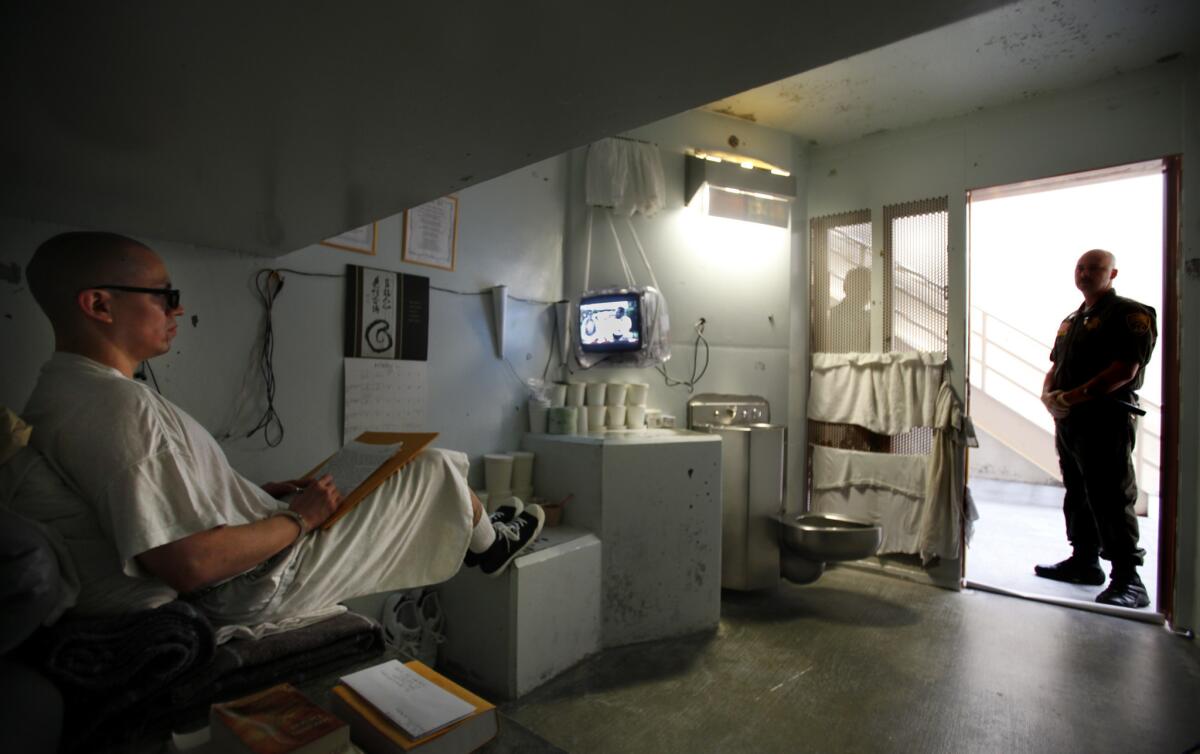Justice Department takes a stand on solitary confinement

This post has been updated.
SACRAMENTO -- The U.S. Justice Department has weighed in on California’s use of solitary confinement and other forms of isolation for mentally ill inmates, saying it has found that such conditions subject prisoners “to a risk of serious harm.”
In a court filing Friday, lawyers in the Justice Department’s civil-rights division took no position on inmates’ request for a court order to block California from keeping mentally ill prisoners in its controversial isolation units.
But they call U.S. District Judge Lawrence Karlton’s attention to a May 31 decision the agency issued about similar circumstances in Pennsylvania, where it found that such treatment violated prisoners’ constitutional rights.
Pennsylvania is the home state of California prisons chief Jeffrey Beard, who previously served as head of corrections there.
[Updated 5:40 p.m. Aug 9: “It’s important to point out that the Department of Justice is taking no position on the merits of the plaintiffs’ allegations, but is simply expressing an interest in the case,” said Deborah Hoffman, spokeswoman for the California corrections department. “California is delivering a constitutional level of mental health care to inmates and we are confident the state will prevail.”]
Although the investigation focused on just one prison -- the Pennsylvania State Correctional Institution at Cresson -- the Justice Department raised questions about the policies that allowed detrimental conditions to occur.
As in California, the Pennsylvania inmates were locked in their cells for roughly 23 hours a day for months or years at a time. Investigators found that mental health care was inadequate and other services and programs were “unreasonably denied.”
Federal investigators said mentally ill inmates in isolation suffered trauma, physical injuries and sometimes death, and were subjected to excessive force and punishment by guards.
The Justice Department decision said it was expanding its investigations to other prisons in Pennsylvania.
Michael Bien, lead lawyer for inmates suing California over mental health care in state prisons, said he had been contacted by the Justice Department for information about conditions here. He was unsure how much federal officials intended to become involved in the California case.
The Justice Department investigation began in 2011. Beard retired in 2010 after a decade as head of Pennsylvania prisons. He took over California’s corrections system in January.
ALSO:
California seeks private prison deals
Maldonado slams Brown’s handling of prison crisis
California inmates continue hunger strike amid controversy over leaders
On Twitter: @paigestjohn
More to Read
Get the L.A. Times Politics newsletter
Deeply reported insights into legislation, politics and policy from Sacramento, Washington and beyond. In your inbox three times per week.
You may occasionally receive promotional content from the Los Angeles Times.











